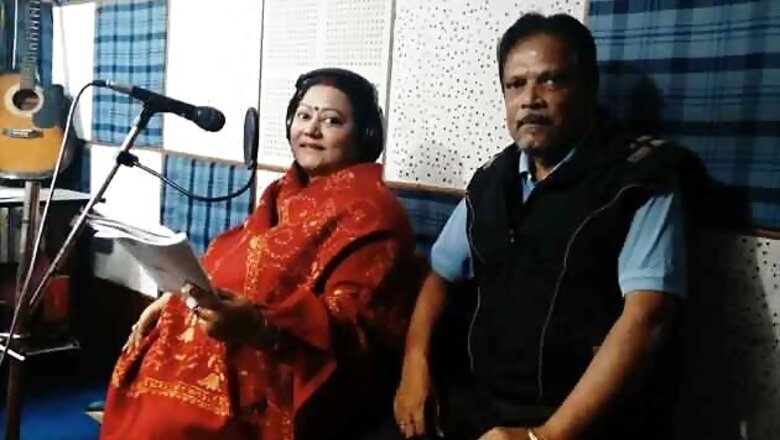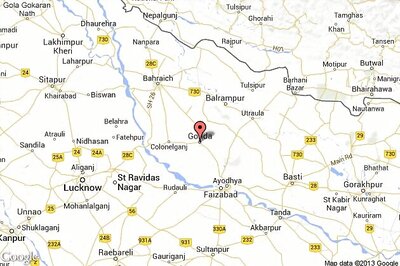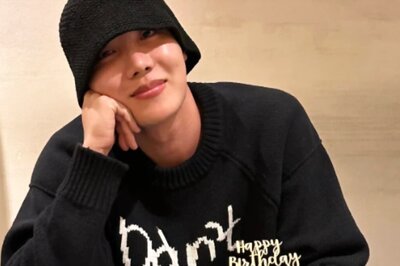
views
Ranchi: Election campaigns have never been complete without dance and songs. Political parties bank on the cultural resources to reach out to people for votes. Thankfully, during elections at least, local culture gets importance. But that mad rush for local election songs is missing this time in Jharkhand.
We spoke to Bullu Ghosh who is popular as Bullu Papa, a well known face of Nagpuri and local music in the state, to get an insight into the business of election songs. His wife, singer Mitali Ghosh who sang 'Kolaveri Di's' Nagpuri version 'Kaale moke khis lage', is not unknown to anyone in Bihar and Jharkhand.
"Dance and songs add local flavour to election campaigns," says Bullu Ghosh who is in the field of music composition for over four decades and has composed songs for parties since early 1970s. From an undivided Bihar to a separate Jharkhand, he has witnessed election for panchayats, municipalities, assembly and parliament.
Excerpts from the conversation:
Q: Assembly elections are on and every party is trying to woo voters. How is the market of election songs doing this year?
A: Election days earlier used to be like Melas. Till the 2012 Hatia bypolls, this market was very lucrative. There was a mad rush and 15 to 20 cars always line up in front of my studio even till late night. But things changed have after that. Big parties like Congress and BJP now buy songs from composers of Bombay and Delhi. So this market is down, though election songs are a key component of their campaigning.
Q: Are local parties also going to Mumbai and Delhi for composers?
A: Now composers are contacted through brokers. They take orders from parties and then contact us. Many a times we get orders from Delhi for election songs that has to be played in Jharkhand. Parties have stopped contacting us directly. Parties still spend crores to record songs but brokers get them products at cheaper prices from big cities.
Q: Has Bollywood crushed the demand for local songs?
A: The demand for traditional rural folk music is still high but demand for local studios has gone down. When parties feel the local flavour is missing in election songs, they contact us. But since this is done through brokers, our profit share is drastically reduced - 50% of it we lose.
Q: Have heard about one-room studios mushrooming during elections.
A: In 1983, I set up this studio at a cost of Rs 20 lakh. Today it takes a mere Rs 1 lakh thanks to computers and song mixing software. When demands were high, every second household in Ranchi became a studio during elections. Even artistes from Nagpur and Varanasi come here, book hotel rooms and make studios for a fortnight.
Ninety per cent people in this field are singers due to computers and auto-tuners. They make the dubbings as per the requirement of candidates, the stuff is delivered within no time on readymade music tracks. The originality is missing now.
Q: Has the creation of a new state made things better?
A: Definitely. Patna was the only centre where candidates preferred to go for poll songs. After 2000, we started getting importance and our business grew. The ongoing recession is a very recent phenomenon.
Q: How do you see Jharkhand elections as an artist?
A: This is a wonderful state from cultural perspective but art, music and culture needs protection and motivation. I hope a new government comes and someone who is sensible towards art and culture is made a minister to address our problems. Currently, we artists have no platform to raise our voice.
Q: Has any candidate assured protection to the local language artists?
A: Not yet. There's not only a single language in Jharkhand. Bangla means Bangla and Bhojpuri means Bhojpuri. But Jharkhandi means Nagpuri, Sadri, Khortha, Kurmali, Odia, Santhali, Mundari, Ho, Kharia and Bhumji, and many more languages. Singers in these languages need training and protection both.
















Comments
0 comment